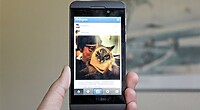
In all of the industry talk aimed at the futile and (some say) abusive treatment of authors by traditional publishers, one often overlooked casualty of the availability of self-publishing options is the vanity press. While many would bid good riddance to the companies that charge authors thousands of dollars and hand them hundreds of copies of their print books to then sell themselves, there are right and wrong reasons for a vanity press to close its doors.
As not only print and digital publishing opportunities grow for indie authors, distribution options have also grown. Where authors at one time did not have the benefit of retailers like Amazon and Kobo to sell their titles for them, it was the vanity presses who had to step in. Now that authors have tools at their disposal to produce and distribute their own content at the click of a mouse and with little to no upfront fees required, the companies formerly known as self-publishing options are falling by the wayside.
An article in Publisher’s Weekly outlines the demise of one such company, WinePress Publishing, who unfortunately closed its doors amid accusations of ripping off authors and its own employees, including allegations that its CEO was brainwashed into selling what had been a multi-million dollar company to her church pastor for only $10. Over the years, WinePress Publishing has lashed back through lawsuits at people who have criticized its practices.
Companies like Book Baby have taken the often-disparaged vanity press model and revitalized it into a legitimate tool for authors today. They’ve altered the business model to remove the additional royalties that vanity presses were notorious for collecting (above the upfront costs they charged), and given more control to authors. For entities like WinePress and the host of allegations that accompanied it, though, the time has come to be replaced with the current self-publishing model.
Mercy Pilkington is a Senior Editor for Good e-Reader. She is also the CEO and founder of a hybrid publishing and consulting company.
